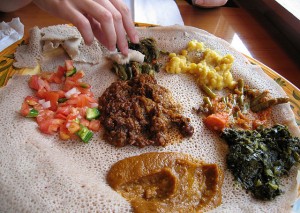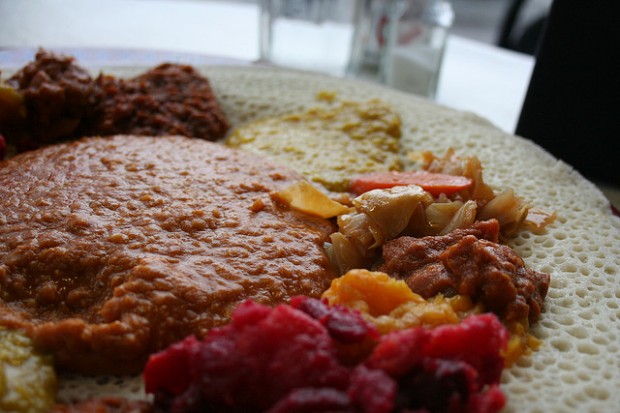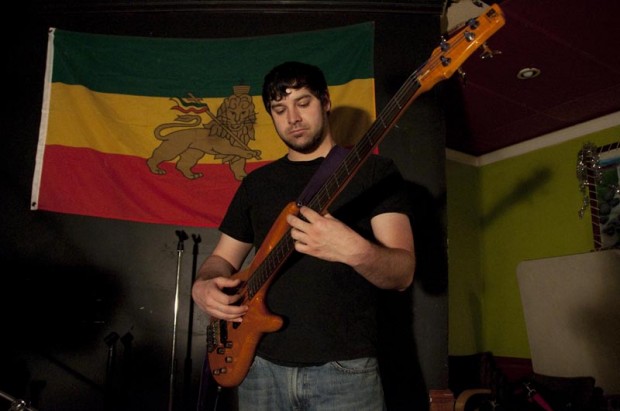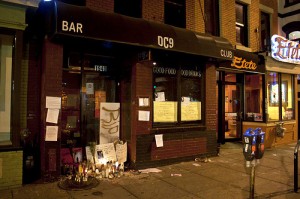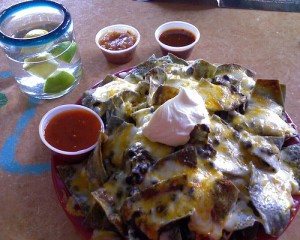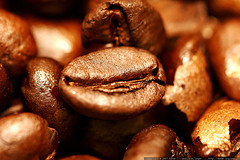Restaurants around D.C.’s unofficial “Little Ethiopia” have been experimenting lately, hosting everything from rock bands and comedy nights, to serving macaroni and cheese instead of injera and tibs. It’s all been part of an effort to stay competitive and alive in the midst of a struggling economy.
So, is it working? Maybe so, at least for Queen Makeda. The restaurant switched over to American fare and has been holding hip hop nights and hosting bands. It’s been so successful that the restaurant now needs more space. This weekend will be Queen Makeda’s last night at 1917 9th St. NW. The restaurant is closing with plans to reopen in a bigger space in the neighborhood.
“There’s definitely a niche in D.C. for what we do,” said Queen Makeda bartender Jeremy Quarless-Cole. “You have to [change] in that area, simply because there are so many Habesha restaurants serving the same food.”
Perhaps there’s still a healthy market for Ethiopian food in D.C. Just not when it’s all concentrated within a few blocks.



